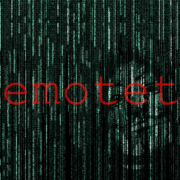Short URL services such as bit.ly are consistently used by criminals to get phishing links past email security solutions and onto their victims’ computers. In this article, we show you how short URLs are used as part of spam campaigns and why 32Guards and its dedicated web crawler offer ideal protection against attacks.
Every quarter, our 32Guards research team provides new insights into the current threat situation in the field of email security. The findings, assessments and concrete recommendations are of high value for all email administrators and other persons responsible for IT security – regardless of whether NoSpamProxy is used as a product or not.
At the turn of the year 2019/2020, the time had come: 32Guards began to send assessments of emails to the participants of the 32Guards beta. Over the course of 2020, the repertoire of detections grew significantly. In this article, we will look back at a number of developments and show how 32Guards became increasingly active, especially in the second half of 2020.
In his analyses, 32Guards has repeatedly noticed short URL services in a particularly negative light in recent months. These URL shorteners generate an alternative, short URL that can be used on Twitter, for example. In this way, the number of characters used in a post can be reduced. The fact that the use of these services can cause problems is, of course, already due to the fact that the actual target of the URL is not recognizable – virtually an invitation to phishers and other cybercriminals.
The coronavirus is still an integral part of our everyday life. Contrary to the hopes of many people the threat situation will be existent after 2020. Financial hardship as well as restrictions on our everyday life, from the obligation to wear masks to the ban on accomodation to the death of cultural life will also shape the year 2021.
The current threat situation is shaped by the trojan Emotet. A striking feature of cyber attacks is that the attack patterns vary rapidly. This makes it difficult to specifically detect Emotet threats at all levels.
In recent days, the security experts at NoSpamProxy have recorded a significant increase in the number of phishing attacks using the well-known URL shredder service bit.ly. Here the attackers use the well-known pattern of “hello spam”.
Much has been written lately about Emotet and the consequences that an infestation with this banking Trojan can have. Among other things, public institutions have had and are struggling with the consequences of successful cyberattacks that have polluted and crippled their respective IT infrastructures, with sometimes catastrophic consequences. The Berlin Chamber Court is perhaps the best-known example, as large amounts of data could probably be stolen over several days. A real IT total damage. We have already explained how you and your company can protect yourself from emotet elsewhere.
But what does an emotet email actually look like? Three concrete examples show how authentic emotet emails now look. All three examples have been reported to us and have only been anonymized by us to the extent necessary for data protection reasons.
NoSpamProxy
Categories
Latest News
 NoSpamProxy Server 15.1 now available24.04.2024 - 15:38
NoSpamProxy Server 15.1 now available24.04.2024 - 15:38 Deactivation of the knowledge base: What you need to do now23.04.2024 - 10:00
Deactivation of the knowledge base: What you need to do now23.04.2024 - 10:00







